What Snake Venom Does To The Body
How to handle snake bite
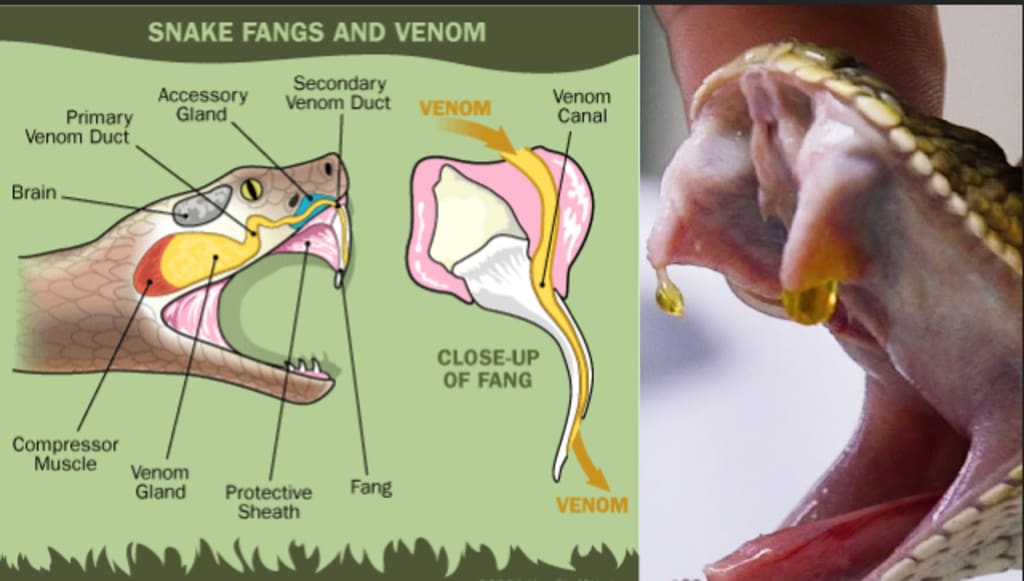
Snakebite is regarded as one of the world's most lethal neglected health issues, as it kills over 100,000 people annually. But what does snake venom actually do to the body?
Venomous snakes can be found all over the world, and they come in many different shapes and sizes. Some of the most venomous snakes include the King Cobra, the Black Mamba, the Taipan, and the Rattlesnake. Each of these snakes has its unique venom, which is designed to target specific types of prey.
What is a Venom?
Snake venom is a complex mixture of proteins and enzymes that are designed to immobilize, incapacitate, and kill prey. These venoms are made up of a variety of different components that work together to achieve their deadly effects.
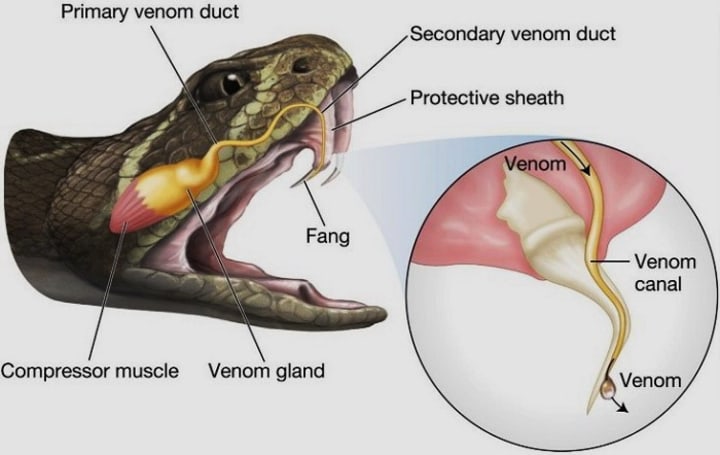
It is believed that venom has independently evolved at least 100 times. Nowadays, thousands of venomous animals thrive around the globe, and their venoms have developed over time to perform specific functions in the animals they envenomate.
Snake venom works by attacking the nervous system, circulatory system, and muscles of the prey. When a snake bites its prey, it injects venom into the body. The venom then travels through the bloodstream, where it begins to take effect.
What Does Snake Venom Do?
Two families of venomous snakes are especially well-known: vipers (Viperidae) and elapids (Elapidae). In general, the venoms from these two categories have differing effects on a bite victim.
The venoms of vipers, which include adders and rattlesnakes, are typically hemotoxic. This indicates that they target the vascular system. They can cause bleeding or inhibit the capacity of the blood to clot.
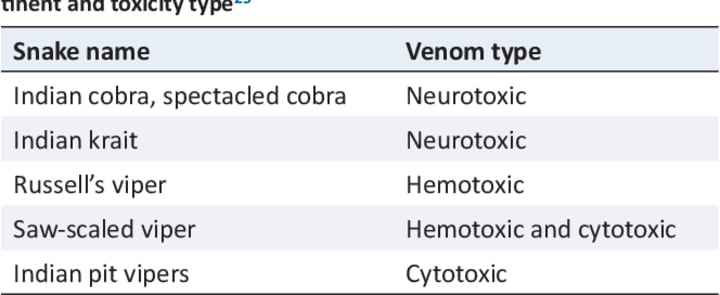
Several venomous snakes, such as cobras, mambas, kraits, and taipans, are elapids. Typically, their venom is neurotoxic, meaning it interferes with the transmission of nerve impulses. Often, it has an immobilizing effect, causing the victim's body to become rigid or limp.
Neurotoxicity and hemotoxicity are not the sole potential effects of venoms, nor are they mutually exclusive.
Taipans, for instance, have neurotoxic venom that is immobilizing and has rapid blood clotting properties.

In addition to causing severe bleeding, rattlesnake venom is cytotoxic (tissue-destructive) and can cause necrosis and wounds. Moreover, some rattlesnake venom is neurotoxic.
Antivenoms
Antivenom can be a lifesaver for someone who has been bitten. Antivenom sticks to the parts of a venom and blocks them, so the poison can't reach its target. It doesn't reverse the effects of venom but prevents further damage.
Antivenoms are created to counteract the effects of venom from a particular species of venomous snake.
Antivenoms are typically created by injecting small, non-lethal amounts of the venom into an animal such as a horse or sheep, which then produces an immune response to the venom. The animal's immune system produces antibodies that can neutralize the venom.
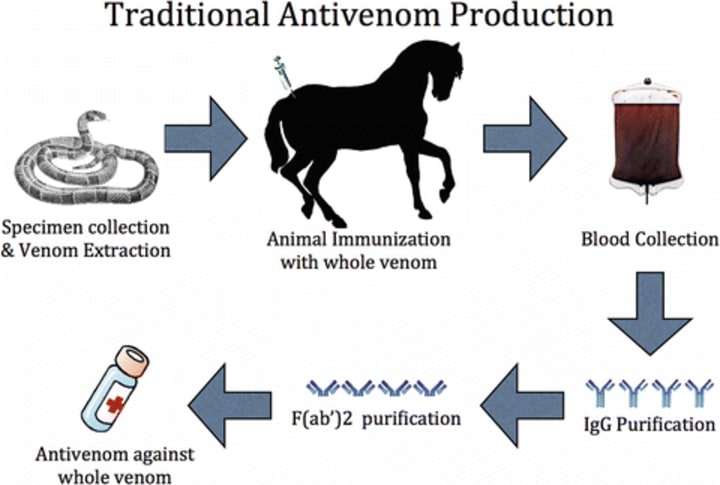
These antibodies are then harvested from the animal's blood and purified to create the antivenom. When administered to a human who has been bitten by a venomous snake, the antivenom can bind to and neutralize the venom, preventing or reducing the severity of its effects.
It's important to note that antivenoms are specific to particular species of venomous snake, so a person who is bitten by a different species may require a different type of antivenom.
What You Shouldn't Do After a Snake Bite
DO NOT apply a tourniquet. DO NOT apply cold compresses to a snake bite. DO NOT apply ice or soak the wound in water. DO NOT cut into a snake bite with a knife or razor. This is according to Snake bites: MedlinePlus Medical Encyclopedia
Why You Should Not Tie Tourniquet After A Snake Bite
Stopping the flow of blood to the skin does stop the venom from spreading, but you don't want that to happen.

If the venom stays close to the bite, it will kill cells quickly. If it spreads out, the toxin will be diluted and likely cause less damage to the tissue.
References:
What happens when you're bitten by a venomous snake?
Snake Venom - an overview | ScienceDirect Topics
How to: Treat a Snakebite - Backpacker Magazine
I hope you learned something reading this article
......xoxo
About the Creator
Rare Stories
Our goal is to give you stories that will have you hooked.
This is an extension of the Quora space: Rare Stories
X(formerly Twitter): Scarce Stories
Official Bookstore: davidkellertruecrime
Writers:
....xoxo


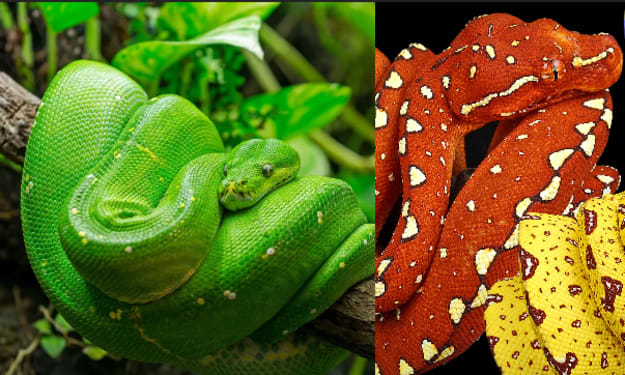



Comments
There are no comments for this story
Be the first to respond and start the conversation.